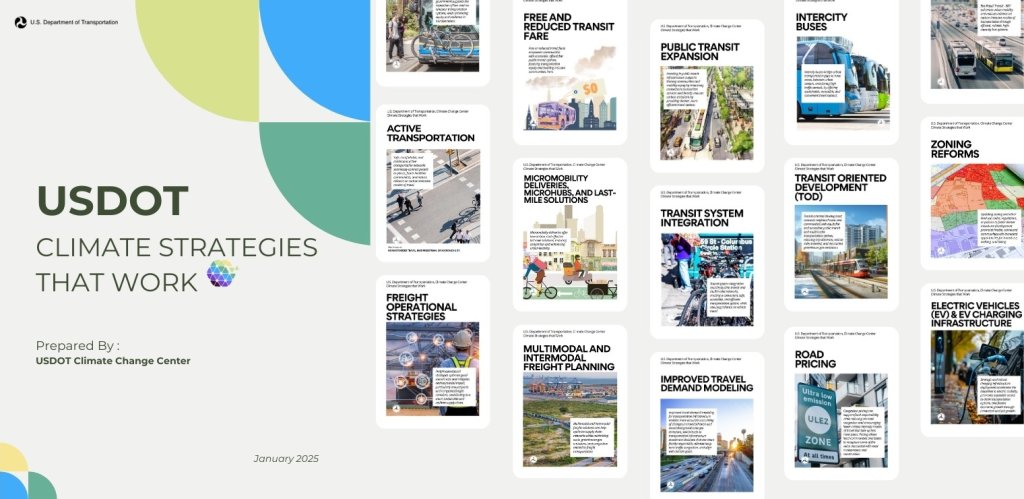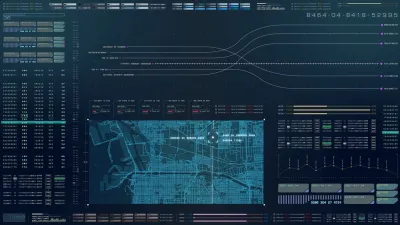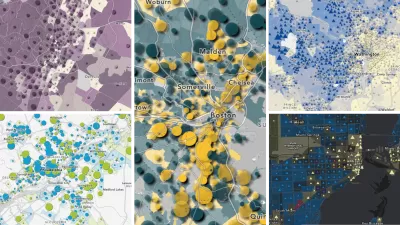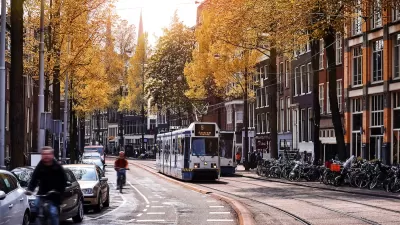The new U.S. federal administration may eliminate useful information sources. Planners should download and preserve key documents and datasets.
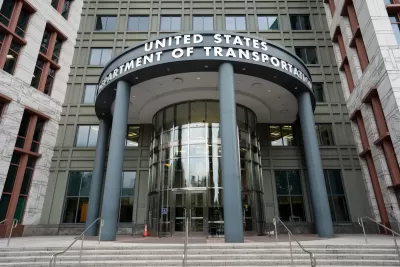
Bakers need flour and carpenters need lumber; what do planners need? Information of course! Data sets, reports, and maps are our key inputs. Some of these are now under threat.
Planners have reasons to be concerned about the new U.S. administration. In its first days it has shut down many federal websites, and that trend is likely to filter down to many federal agency pages, including some with basic planning information. I recommend that planners download and preserve documents and data sets that may be useful in the future. If necessary, we can pass it around like underground Samizdat literature during the Soviet era.
For example, the US Department of Transportation's Climate Change Center recently produced a Climate Strategies that Work Playbook website that provides guidance on evaluating and implementing the 27 transportation emission reduction strategies listed below. The entire set is also available in one large document.
- Active Transport
- Bus Rapid Transit
- Commuter Benefits
- Coordinated Transportation Planning
- Electric Vehicle Charging Infrastructure
- Free and Reduced Transit Fare
- Freight Digital Solutions and Emerging Technologies
- Freight Operational Strategies
- Heavy-Duty Diesel Engine Retrofit and Replacements
- Idle Reduction Technologies and Strategies
- Improved Travel Demand Modeling
- Intelligent Transportation Systems
- Intercity Bus
- Intercity Passenger Rail
- Micromobility Deliveries, Microhubs, and Last-Mile Solution
- Multimodal and Intermodal Freight Planning
- Off-Peak Delivery
- Parking Reforms
- Public Transit Expansion
- Ridesharing and Carsharing
- Road Pricing
- Shared Mobility and Microtransit
- Transit System Integration
- Transit-Oriented Development (TOD)
- Trip Planning Tools and Modal Integration
- Vehicle Energy Efficiency Improvements
- Zoning Reforms
This is useful information, and many of these strategies support conservative goals such as government cost efficiency, affordability, consumer sovereignty and efficient pricing, as discussed in my new report, Progressive Planning in Ideologically Conservative Communities, but I fear that the new administration will shut down the entire website simply because it is framed in terms of emission reduction goals.
I have a personal reason to hope that this website is preserved, since many of these documents cite my research, particularly a report, Planning for Quality of Life: Considering Community Cohesion and Related Social Goals, which was previously called Community Cohesion as a Transport Planning Goal. It analyzes quality of life (social) goals, describes ways to evaluate them, and identifies strategies that can help achieve these goals and improve overall livability. Both conservatives and liberals have good reasons to support these goals.
A basic principle of good planning is to hope for the best but prepare for the worst, which for planners means losses of the information needed for our jobs. Whenever you use a government website consider downloading and saving any documents and datasets that you or colleagues may want in the future.
What do you think? How can planners respond to harmful ideological attacks?

Planetizen Federal Action Tracker
A weekly monitor of how Trump’s orders and actions are impacting planners and planning in America.

Congressman Proposes Bill to Rename DC Metro “Trump Train”
The Make Autorail Great Again Act would withhold federal funding to the system until the Washington Metropolitan Area Transit Authority (WMATA), rebrands as the Washington Metropolitan Authority for Greater Access (WMAGA).

The Simple Legislative Tool Transforming Vacant Downtowns
In California, Michigan and Georgia, an easy win is bringing dollars — and delight — back to city centers.

The States Losing Rural Delivery Rooms at an Alarming Pace
In some states, as few as 9% of rural hospitals still deliver babies. As a result, rising pre-term births, no adequate pre-term care and "harrowing" close calls are a growing reality.

The Small South Asian Republic Going all in on EVs
Thanks to one simple policy change less than five years ago, 65% of new cars in this Himalayan country are now electric.

DC Backpedals on Bike Lane Protection, Swaps Barriers for Paint
Citing aesthetic concerns, the city is removing the concrete barriers and flexposts that once separated Arizona Avenue cyclists from motor vehicles.
Urban Design for Planners 1: Software Tools
This six-course series explores essential urban design concepts using open source software and equips planners with the tools they need to participate fully in the urban design process.
Planning for Universal Design
Learn the tools for implementing Universal Design in planning regulations.
Smith Gee Studio
City of Charlotte
City of Camden Redevelopment Agency
City of Astoria
Transportation Research & Education Center (TREC) at Portland State University
US High Speed Rail Association
City of Camden Redevelopment Agency
Municipality of Princeton (NJ)


























